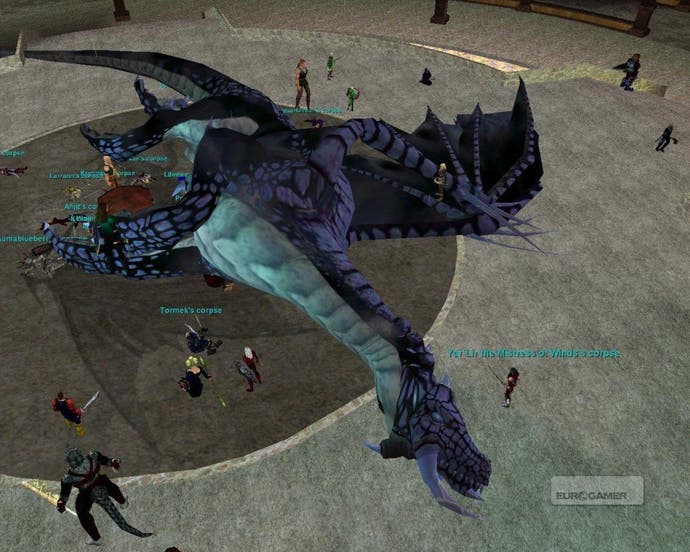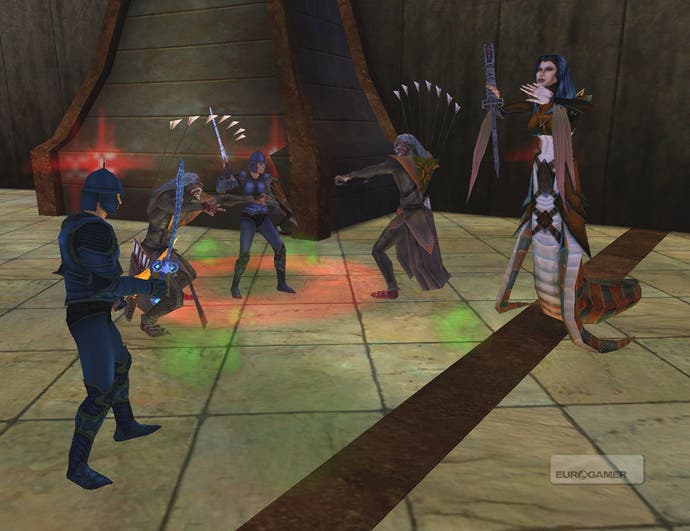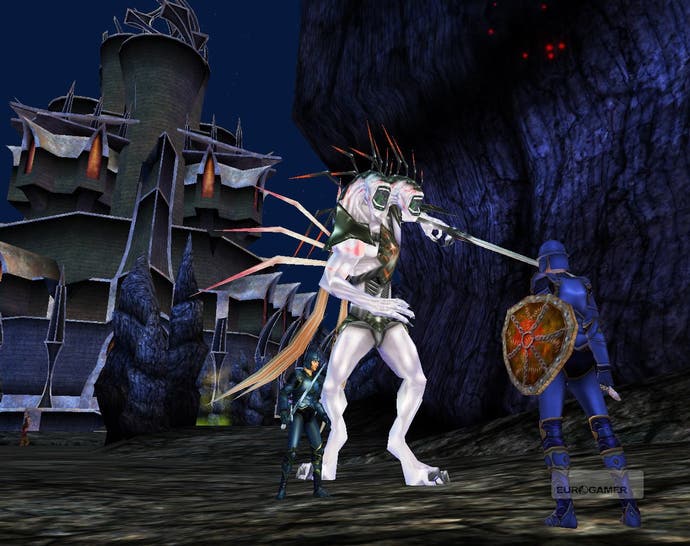Ten years of EverQuest
A veteran of five of them looks back.
Admit it. World of Warcraft created the MMORPG industry. I'm talking about the industrial component, involving hundreds of millions of dollars of revenue a year. I'm talking about the mind-blowing popularity. I'm talking about PowerPoint presentations about customer retention, and a few press releases a year telling the media that they've gained another few million subscribers.
None of this is a negative. In fact, I can only applaud and thank Blizzard for its success - it brought a great deal of exposure and popularity to the genre, and created thousands of jobs in hundreds of development houses. Without sarcasm or cynicism I can say that Blizzard took a model that worked before and made it a true business, one that raised the profile of a genre so much that national newspapers and old people knew what it was.
But it didn't do it alone, and it wasn't first. The genesis of the modern MMO industry was, ultimately, in the hands of Sony Online Entertainment (originally Verant and 989 Games) and a team of developers including the slightly disgraced veteran and creator Brad McQuaid. The game they made was EverQuest.

To all but the most hardcore World of Warcraft, Warhammer Online or Age of Conan players, the original EverQuest would have seemed a monstrosity of unforgiving difficulty. There was little or no guidance beyond the original tutorial, and there were literally tens of quests, with no shiny yellow exclamation marks bobbing above NPC's heads. In fact, most of the game was left up to the imagination and investigation of players, who were given no guidance beyond the knowledge of the name of areas and cryptic clues left by the designers throughout the original world.
In fact, the beauty of "Old World EverQuest" (referring to either the very first release of the game, or said world combined with the Ruins of Kunark and Scars of Velious expansions) was that most of the game - and I really mean almost everything - was left unexplained. After 'hailing' an NPC (pressing H or typing "Hail") players would have to communicate with them - typing in random words and names, or handing over particular items in the hope that it would unlock the next step of the quest. This was at times aided by particular words being in square [brackets], signifying what word to type, but many times it was left up to the whimsy of the player to work out what to say. Much like the average player's conversation with a woman.

Many of these quests didn't reward experience, and for the most part you were left to grind - a negative term in the industry nowadays - all the way to level 50, then 60, then 70, then 80. The idea of moving to specific areas and completing quests was an alien concept - players did what they could to score as much experience as possible, and always in a group (as going solo was eventually suicidal). Some classes - for example Druids, Necromancers, and (during the Planes of Power expansion) Enchanters - would 'kite' enemies in circles, chipping away at their health bars with damage-over-time spells and keeping themselves as far away as possible, hoping that their prey would die before they got too close.
It was, on reflection, an utterly bizarre way to game. Most of the time, groups of players would sit in areas, 'pulling' (leading creatures towards their group, preferably one or two at a time) and killing things for hours on end, gaining experience, levelling up, and then moving on to another area to do the same thing. At the high end, raids would take place, much like World of Warcraft's, but without much of the environmental drama of encounters like Onyxia - and the entire lure of them was to score better equipment.

If you were to die in the old-school EverQuest, your corpse would also be a static object, holding all of your equipment. You'd have to venture on corpse runs - quirky, naked journeys into the depths of wherever it was you expired in the hopes that you would find your corpse and equipment without dying - and yes, your corpse would expire. Better yet, a death would lose you experience, at times un-levelling you if you lost enough. Clerics could resurrect you, but only regain you 90 per cent of the lost experience - this was eventually raised at the higher echelons of the game.
To put it bluntly, EverQuest lacked structure and goals. Eventually, in the Lost Dungeons of Norrath expansion, SOE added in dungeons and in later expansions 'tasks' (read: quests). There was plenty of downtime, it took months (no exaggeration) at first to level to 50 or 60, and frankly, even when you reached that level, the grind never ended with the Advancement points that added new, ridiculous dimensions to many classes.
But why would people play it? Why did I, a veteran of five long years, find myself addicted to what was arguably not an experience that hinged upon its content, or even its goals?
Because, frankly, by the very virtue of trapping people in the same areas together for hours on end, SOE created unusually strong and powerful bonds between them.
